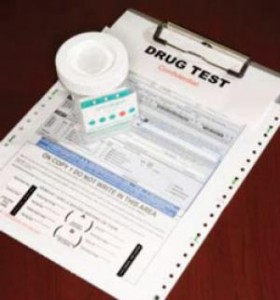A bill that would have required Hoosier State welfare recipients to undergo drug testing based on a “reasonable suspicion” of drug use was killed Friday after the state Senate refused to act on it. The bill had already passed the House, but died when Senate and House negotiators could not agree on what to do about payments to children whose parents had tested positive for drugs.
 The bill, House Bill 1483, would have required the Department of Family and Social Services to create a drug abuse assessment program for welfare recipients whose screenings indicated a likelihood of drug use, subject to drug testing. People who tested positive would not be immediately subject to loss of benefits, but would have to successfully pass two consecutive drug tests within 40 to 60 days to continue receiving benefits. If the person does not provide two clean drug tests within four months, he or she would lose benefits for three months. After three months, the individual could again apply for benefits, but would have to pass a drug test.
The bill, House Bill 1483, would have required the Department of Family and Social Services to create a drug abuse assessment program for welfare recipients whose screenings indicated a likelihood of drug use, subject to drug testing. People who tested positive would not be immediately subject to loss of benefits, but would have to successfully pass two consecutive drug tests within 40 to 60 days to continue receiving benefits. If the person does not provide two clean drug tests within four months, he or she would lose benefits for three months. After three months, the individual could again apply for benefits, but would have to pass a drug test.
As with other states seeking to avoid constitutional challenges by using the “reasonable suspicion” standard instead of mandatory, suspicion-less drug testing, Indiana legislators used an expansive definition of the term. “Reasonable suspicion” could be derived from having a prior drug conviction, the results of the drug screening inventory, or having failed a previous drug test.
While legislators in both houses agreed on the desirability of subjecting welfare recipients to drug testing, they differed on a provision allowing welfare benefits to be provided to a third party to ensure that children did not lose their support. The Senate had approved an amendment to the House version of the bill providing for third party payments, but the final version of the bill crafted by House and Senate negotiators did not include that language, and the Senate then refused to give it a final vote.
The bill’s goal was to help families with drug-using parents “and at the same time not punish the children,” said Senate President David Long (R-Fort Wayne). “You can turn yourself into a pretzel trying to do the right thing. We didn’t feel it was ready.”
Public benefits drug testing bills remain alive in several states this year, including Alabama, North Carolina, and Texas.
Article republished from Stop the Drug War under Creative Commons Licensing









